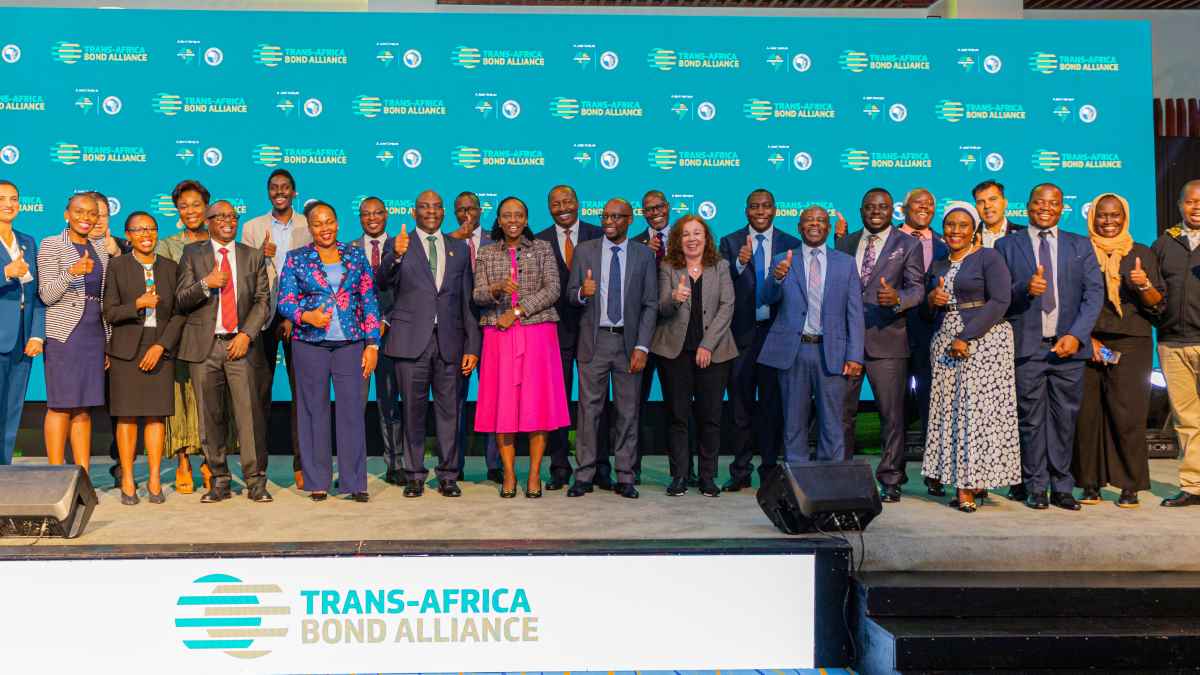NAIROBI, Kenya, March 28, 2025/APO Group/ –African Export-Import Bank (Afreximbank) (
www.Afreximbank.com) and Zep-Re (PTA Reinsurance Company) today launched the Trans-Africa Bond Alliance (TABA), a transformative initiative, designed to bridge the insurance capacity gap and empower African contractors to secure more construction and procurement projects while boosting cross-border trade and enhancing the movement of goods and investment across Africa.
By providing robust transit guarantee mechanisms, the joint venture between Afreximbank and Zep-Re is expected to reduce trade barriers, lower costs, and improve efficiency in the movement of goods across Africa. Moreover, TABA will promote seamless cross-border trade and the growth of trade insurance business within the continent, all within the transformative framework of the African Continental Free Trade Agreement (AfCFTA), which aims to create a single market for goods and services across 54 countries. By facilitating seamless transit trade, TABA will strengthen the trade insurance sector, making it easier for businesses to operate with confidence while minimising financial risks.
Speaking at the launch, H.E Veronica M. Nduva, CBS, Secretary General of the East African Community (EAC) noted, “The East African Community has long been committed to fostering regional integration and economic development. Indeed, our two pillars of the four of establishment are a customs union and a common market. The establishment of TABA aligns seamlessly with our regional integration program, which aims to enhance cross border trade, reduce trade costs and promote economic growth across the continent with simplified trade regimes.”
Africa has around 110 borders, with 16 land-locked countries relying on complex and costly trade processes. According to African Development Bank (https://apo-opa.co/42cf7vn), transport charges in some cases exceeding the value of goods being traded. With TABA, traders can transport goods from Cape Town to Cairo using a single transit bond, significantly reducing delays and cutting trade costs. This transformative solution enhances the efficiency of African supply chains while ensuring customs authorities receive guaranteed revenue in the event of procedural breaches.
Through this collaboration, our goal is not to displace local operators but to boost the capacity and efficiency of interstate transit regimes
The establishment of TABA builds on decades of efforts to bolster intra-African trade through key financial and insurance institutions. By leveraging expertise from these institutions; Afreximbank, which is playing a critical role in trade finance and facilitation since its founding in 1993, and ZEP-RE, a leading reinsurance provider supporting trade insurance solutions across Africa, TABA aims to address the challenges businesses face in navigating Africa’s diverse regulatory environments. The alliance will harmonize trade practices and introduce a standardised framework that ensures secure, predictable, and efficient trade movement.
Mr Denys Denya, Senior Executive Vice President of Afreximbank, said:
“Today we forge a new alliance to dismantle the artificial barriers and tighten the bolts and nuts of the wheels of trade and investment flows across national borders. This couldn’t have come at any other time than now, when the pillars of global cooperation and integration are being disintegrated, and fragmentation, isolationism and protectionism have taken hold in our world. Through this collaboration, our goal is not to displace local operators but to boost the capacity and efficiency of interstate transit regimes, paving the way for a continental framework under the AfCFTA.”
Ms Hope Murera, Managing Director and CEO of Zep-Re (PTA Reinsurance Company), noted during the launch the impact TABA would make in Africa trade ecosystem. She said, “Today, we are not just unveiling a new partnership—we are ushering in a new era. One that reimagines how we facilitate trade, manage risk, and support cross-border movement across our continent. ZEP-RE’s experience and impact through flagship regional programs demonstrates what is possible when vision meets action. TABA represents a shared vision—a vision where Africa is connected by bridges of opportunity, not barriers”.
TABA introduces a streamlined approach to trade facilitation by leveraging Transit Bonds, Performance Bonds, and Standby Letters of Credit (SBLCs) to guarantee the secure movement of goods. This initiative will:
- Enhance trade efficiency by eliminating delays caused by multiple national bond requirements,
- Boost investor confidence through a structured and transparent customs guarantee system,
- Reduce trade costs, making African exports more competitive on a global scale,
- Ensure compliance with customs regulations, preventing illicit trade and securing revenue for governments and
- Expand market opportunities for African businesses by enabling smoother cross-border trade.
Following today’s launch, key stakeholders will engage in B2B meetings and marketplace interactions to discuss strategies for implementing TABA across Africa. The alliance will also roll out an awareness campaign to educate businesses and financial institutions on the benefits and operational framework of the new system.
